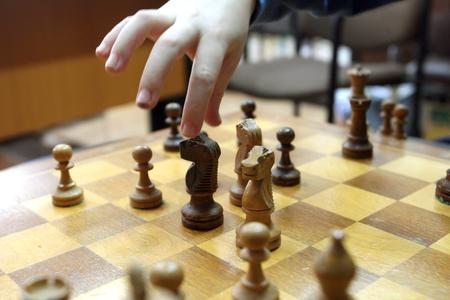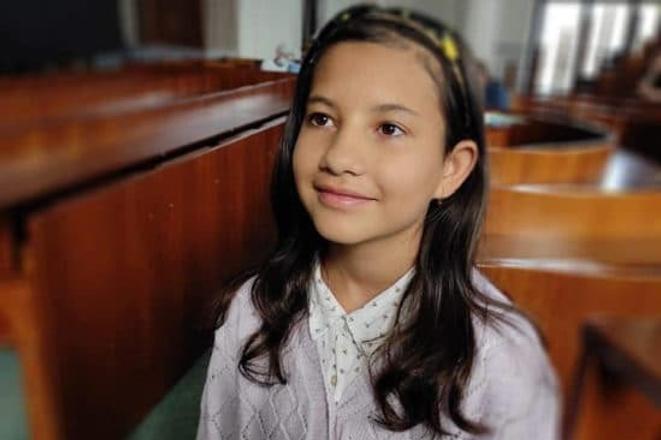Despite coming from a poor environment, an 11-year-old girl is able to defeat her more experienced rivals at chess.
Slovakia’s Beth Harmon is Agáta Berková from Poltár (Banská Bystrica Region). She has been playing chess since she was six and is the most talented in the Roma chess team, Hrochotskí Jazdci (Riders from Hrochoť).
“I play chess because I like it,” Agáta said, as quoted by the Netky.sk website. “I meet with people while playing and I cultivate my thinking.”

She is being raised by her father, a single parent, who was also her coach.
Agáta won the GPX SR in speed chess at the age of eight, and placed fifth in the EU Championship.
In 2008, she became the first girl in the EU to place among the top five with the highest ELO score in the boy category, and topped the girl’s category in the age group 10 and below.
She regularly plays with adults in the fourth and fifth league, the Divé Maky civic association wrote.
Agáta even played a game with former World Champion Anatoly Karpov, which ended in a tie.
Silent chess
Agáta’s father Milan is working in the community centre in the village of Hrochoť, near Zvolen (Banská Bystrica Region). Mainly children supported his idea of creating a chess team. He started enrolling his charges into chess competitions, met with embarrassment from the beginning.
“Chess is about being quiet,” Milan Berko described, as quoted by the Dobré Noviny website. “Suddenly, there were a group of Roma coming to competitions. Players were not used to the Romas at first. When we appeared, you should have seen how everyone's heads turned to us. I even saw how ladies clutched their handbags to check whether they had all their things. It was really unpleasant and the children noticed it as well.”
Berko explained that from the beginning they did not find much support and financial resources. The children were playing on two or three chessboards. Later, they joined forces with a chess club in Banská Bystrica.
About six months after the children started playing chess, they started to perceive their future differently. Every child visiting the club ended up in secondary school, Berko said.
“The condition for attending the chess club was having good school results and proper behaviour,” he added.



 Agáta Berková is a gifted chess player, now compared to Beth Harmon of The Queen's Gambit. (source: Divé maky)
Agáta Berková is a gifted chess player, now compared to Beth Harmon of The Queen's Gambit. (source: Divé maky)